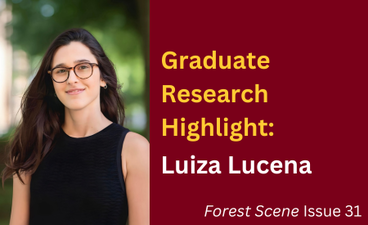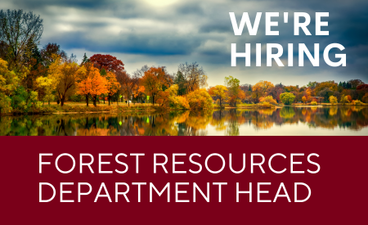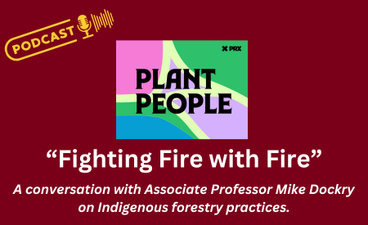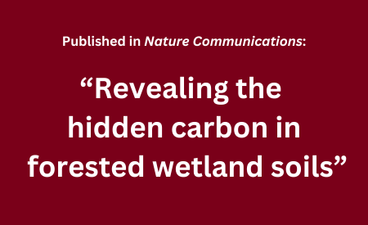
Graduate Research Highlight: Luiza Lucena
Luiza Lucena, who is pursuing her Ph.D. in Natural Resources Science and Management (NRSM), aims to assess the involvement of local communities in the Maya Forest region in the development and implementation of Voluntary Sustainability Standards.

Supporting Sustainable Agroforestry in Guatemala
The Center for Integrated Natural Resources and Agricultural Management (CINRAM) collaborates closely with agroforestry communities around the world. Through its interdisciplinary, international collaborations, CINRAM conducts applied research on the financial impacts of agroforestry and land use practices. It aims to nurture profitable businesses, thriving communities, and a healthy environment simultaneously.

Prions in MN Waterways: Discovery Helps Water Managers Plan
“People in Minnesota value their water,” observes hydrologist Dr. Diana Karwan, Associate Professor with the Department of Forest Resources. So when the Minnesota Center for Prion Research and Outreach received a state mandate to investigate chronic wasting disease, many questions from the public and legislators kept returning to the subject of our lakes, wells, marshes, and streams.

UMN-Twin Cities Designated as Tree Campus in Higher Education
The UMN Twin Cities campus, co-located in Minneapolis and St. Paul, was officially designated a Tree Campus in Higher Education by the Arbor Day Foundation last spring, a recognition of its abundance of well-cared-for trees.

Recommended Reading
Find recent writing by our community, including a book on how climate change is affecting the global sports industry, an award-winning story on beavers, family, and home, and undergraduate reflections on the future of parks and protected areas.

Now hiring: Forest Resources Department Head
The University of Minnesota’s Department of Forest Resources seeks a vibrant leader who will help us grow our role as a regional, national, and international leader in research and education related to forestry, natural resources, and the environment. Apply today!

Department Message, Forest Scene Issue 31
From the Issue 31 of the Forest Scene newsletter: A letter from Dr. Kristen Nelson, Professor and Interim Head of the Department of Forest Resources, to our community.

2024 Forest Management for Culturally Significant Species workshop
The UMN Sustainable Forests Education Cooperative (SFEC), run by Program Manager and Extension Specialist Eli Sagor and Program Coordinator Lane Moser, hosts this field-based workshop annually in partnership with the Leech Lake Band of Ojibwe. About 45 natural resource managers from a variety of public and private organizations and wood products companies joined them earlier this summer to learn different strategies for managing forests that are home to culturally significant species, including trees, berries, and animals. The aim is to help resource managers learn how to meet cultural-use goals for these species.

“Fighting Fire with Fire” podcast episode featuring Mike Dockry
With an above-normal risk of wildfires predicted for the summer, Forest Resources Associate Professor Mike Dockry was asked to join the Plant People podcast. Dockry is registered member of the Citizen Potawatomi Nation and a leading authority on how Indigenous forestry practices can help curb such large, destructive fires. In the episode, he and host Jennifer Bernstein, New York Botanical Garden CEO and President, explore the state of our forests and the increased threat of wildfires as a result of climate change. They also dig into ways that traditional forestry methods, from controlled burns to carefully considered cutting, can provide the knowledge we need to address this problem – if only we acknowledge their value.

New paper: "Revealing the hidden carbon in forested wetland soils"
"Revealing the hidden carbon in forested wetland soils," a research paper published in Nature Communications in January 2024, highlights the magnitude and distribution of "cryptic carbon" in forested regions containing soil organic carbon (SOC)-rich wetlands of the Pacific Northwest. These forested SOC-rich wetlands are not included on current maps, and therefore have been neglected. Forest Resources faculty member Chad Babcock is one of the paper's authors.
